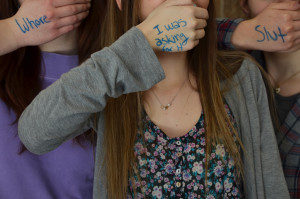Building a better online community
Mar 5, 2015
We see a lot of things we don’t like on Twitter.
There is probably a parody account, counterpoint, and, unfortunately, many blatant examples of ignorance against whatever your passion or belief may be. And that is the world we live in.
In our article, “Living in a rape culture,” we tell the story of a localized instance of rape culture that appeared on our Twitter feeds. We want to clarify that the people who tweeted and posted #HDRT were likely not aware of the rape culture they were perpetuating, and we do not seek to shame them for their actions.
We hope our article educated the larger community on the destructive culture that they were contributing to – even if they didn’t know it. More than that, we hope our article shed light on a topic that is often misinterpreted and taken to extremes on social media.
The students who used #HDRT were never formally asked to remove or change it by peers – and that is the fault of all of us.
We seek to empower students to stop scrolling and recognize when something on Twitter is not okay. When something offends you, it’s likely not just you who feels that way, and you shouldn’t let it continue.
Tell an adult. It’s not the job of your parents, your teachers, or your administration to monitor Twitter. It is their job to maintain a safe and inclusive environment for you, so when Twitter becomes a battle arena, they must cross the digital line and intervene.
While Twitter can be and is, for many, a productive outlet for the spreading of positive messages, it can be just as detrimental to causes that began with good intentions.
It is easy for people who see their deep-seated beliefs and passions condemned on Twitter to hide behind the screen and profess their rage, rather than realize others may not be coming from the same educated perspective.
For all of us who have made this mistake, we know how bad it feels when someone takes the conversation out of context and it starts to feel like a battle against you, rather than a battle for a cause.
Send positive messages on Twitter, and leave the debating for the classroom. In person, there is no time to formulate the ‘perfect’ biting response, no dictionary or Wikipedia to reference, and no friend to text for advice.
Let’s create a social media world less polluted by ignorance and hate, and an educational world filled with thought and insight.

